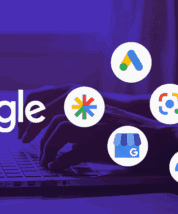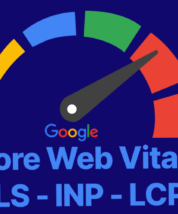Overview
On the other side of the equation, SEO professionals now rely on AI-powered tools to analyze data, personalize content, and automate large-scale optimizations.
So, are we witnessing the end of traditional SEO?
Not quite.
We’re entering a new era — one that blends automation with strategy, predictive analytics with creativity, and user experience with machine learning.
In this article, we explore how AI and Machine Learning are reshaping modern SEO, what tools and opportunities they unlock, and how to strike the right balance between human expertise and intelligent automation.
1.What Is Machine Learning and How does it apply to SEO?
SEO is no longer about matching keywords or optimizing static pages. Search engines have grown smarter — and so must we.
At the heart of this transformation is Machine Learning: a branch of artificial intelligence that allows algorithms to learn from data, detect patterns, and improve over time without being explicitly programmed.
For SEO, this is a game changer.
Google now uses AI and machine learning models like RankBrain, BERT and MUM to better understand user intent, context, language nuances, and even emotional tone. These models don’t just look at keywords — they interpret meaning, predict behaviors, and adjust rankings accordingly.
On the SEO side, Machine Learning enables a shift from reactive to proactive strategy:
- Predicting search trends and emerging queries,
- Detecting optimization opportunities based on real-time user signals,
- Automating technical audits or content analysis at scale.
This is where SEO Machine Learning and AI SEO Automation enter the picture — offering insights and agility that traditional methods can’t match.
It’s no longer about “ticking boxes” in an SEO checklist. It’s about understanding how search engines evolve, and aligning with them using the same logic: data, context, prediction.
Our Expert’s Take:
"Machine learning is quietly reshaping SEO. Behind every search, there’s now an intelligent system interpreting intent, testing responses, and adapting. For marketers, it’s no longer enough to optimize — we need to learn, predict, and respond in real time."
2.How AI Is transforming SEO Strategies
The integration of artificial intelligence into SEO is redefining how we build strategies — not just how we optimize pages.
Gone are the days of simply targeting static keywords. With the help of AI SEO personalization, search optimization becomes dynamic and context-aware. AI models now adapt content and structure based on:
- User intent,
- Location,
- Search history,
- Device and behavior patterns.
In other words, the same search query might return different results depending on who is searching, when, and from where — because the algorithm is now capable of learning and adapting in real time.
This leads to a new kind of SEO: one that’s not only more relevant, but personalized at scale.
What does that look like in practice?
- Generating content suggestions based on behavioral data,
- Adjusting metadata dynamically to improve CTRs,
- Matching content tone and structure to different audience segments,
- Or even preemptively optimizing for predicted queries.
With AI-driven insights, SEO becomes a loop — not a one-time project. The algorithm learns, the SEO adapts, and the experience improves continuously.
Our Expert’s Take:
"AI is pushing SEO beyond optimization — into personalization. We’re not just building content for keywords anymore, but crafting experiences for real people, in real moments. The brands that master this shift will stand out — not because they rank first, but because they resonate better."
3.The rise of AI-Powered SEO tools
To keep pace with algorithm changes, shifting user behaviors, and growing content demands, SEO professionals are increasingly turning to AI-powered tools — not to replace their expertise, but to amplify it.
These SEO AI tools leverage machine learning to analyze vast amounts of data, surface new opportunities, and automate tedious tasks. And they’re getting better every day.
Here’s what these tools are now capable of:
- Semantic keyword clustering: uncovering topic groups and long-tail variations based on intent.
- Predictive content planning: identifying what to write — and when — based on trending search behavior.
- Dynamic on-page optimization: tweaking headlines, meta tags, or internal links based on real-time feedback.
- Technical SEO automation: crawling, diagnosing, and prioritizing issues faster than any human could.
- SERP performance analysis: benchmarking competitors and revealing opportunities for visibility gains.
These features make SEO automation not just a time-saver, but a strategic advantage — especially in competitive verticals.
The real strength of these tools lies in their ability to scale intelligence, not just processes. They empower marketers to focus on what truly matters: creativity, UX, messaging, and long-term impact.
Our Expert’s Take:
“SEO tools powered by AI are like having a strategist working behind the scenes 24/7. They help you spot what matters faster, and act before it’s too late. But they don’t replace instinct — they refine it.”
4.Automating SEO: smart move or risky shortcut?
With the rise of AI SEO automation, it’s tempting to let machines handle everything — from keyword targeting to content generation, technical audits, and internal linking. And in many cases, automation works beautifully.
But automation isn’t magic. And in SEO, it’s not always the best solution.
Let’s start with what works:
- Automated meta tags that adapt to page content,
- Real-time SEO health checks that detect technical issues before they impact performance,
- Internal linking suggestions based on semantic relationships and crawling patterns,
- Content scoring systems that assess optimization and readability.
These are time-saving, reliable, and scalable. But there’s a fine line between automating with strategy and outsourcing your thinking.
The risks?
- Over-optimized or repetitive content,
- Missed nuances in tone or audience expectations,
- Blind trust in AI-generated suggestions that don’t align with your brand voice or goals.
Ultimately, SEO is not just a technical lever. It’s about relevance, user experience, and strategic storytelling. Automating without oversight leads to shallow experiences — and search engines notice.
Our Expert’s Take:
“Automation can do a lot — but it can’t think for you. Use AI to gain speed and clarity, not to check out. The most impactful SEO strategies combine automation where it makes sense… with human judgment where it really matters.”
5. Risks, biases and the need for human oversight
The more we rely on AI in SEO, the more we must confront its limitations.
Let’s be clear: AI and machine learning models don’t create meaning — they detect patterns. And sometimes, those patterns are incomplete, biased, or misaligned with your audience.
One risk? Content without depth. When overused, AI-generated pages can sound robotic, redundant, or off-brand — especially if they’re produced at scale with no human editing.
Another? Algorithmic bias. The AI that suggests topics or structures may have been trained on datasets that favor certain demographics, languages, or tones — leaving others underrepresented. That can lead to SEO strategies that unintentionally exclude or mislead.
Finally, there's the danger of automating blindly. Trusting AI outputs without critical review can result in:
- Inaccurate content,
- Misplaced keyword strategies,
- Or UX decisions that damage performance instead of boosting it.
The solution isn’t to abandon automation — but to treat it like a co-pilot. One that suggests, learns, improves… but always under your direction.
Our Expert’s Take:
“AI is powerful, but not perfect. The SEO teams that thrive in the coming years will be the ones who use automation to move faster — but who never give up strategic control. In SEO, insight beats shortcuts. Every time.”
6.What SEO strategies should you adopt in the age of AI?
Understanding how AI reshapes SEO is crucial. But knowing how to respond strategically is even more important.
Here are the actionable levers every brand should activate today:
Focus on editorial quality and semantic structure
AI favors content that’s well-written, well-structured, and contextually relevant. That means clear headings, rich metadata, short paragraphs, and above all — content that answers real search intent.
Use AI SEO tools… wisely
AI-based SEO tools are great for speeding up tasks: keyword suggestions, on-page audits, competitive monitoring. But remember — tools are assistants, not strategists. Human vision still drives meaningful results.
Double down on E-E-A-T (Experience, Expertise, Authority, Trust)
Search engines now prioritize credible content. Show who’s writing, why they’re legitimate, and how the content is sourced. Think “trust-building content,” not just “optimized content.”
Let AI enhance your strategy — not dictate it
AI can help with production, personalization, and prediction. But if you only follow what the tools say, you’ll lose your brand voice. The smartest brands use AI to scale without losing soul.
Keep it human
Great SEO in 2025 is not just about pleasing Google. It’s about creating genuine value for the user. Clear, helpful, respectful content — that earns both clicks and trust.
Our Expert’s Take:
"The smartest SEO strategy in the age of AI? Stay human. The algorithm will evolve — but attention will always be scarce, and trust will always be priceless."
Subscribe to our newsletter and gain access to strategic insights, exclusive analyses, and expert tips to enhance your online presence.
Conclusion – Towards a human-centered, AI-augmented SEO
AI is not the end of SEO — it’s a turning point. With Machine Learning and AI SEO tools, we can analyze faster, predict better, and automate more than ever. But what sets a brand apart today isn’t just speed or volume — it’s relevance, depth, and trust.
The future of SEO belongs to those who embrace AI as an amplifier, not a replacement. To those who combine automation with intention, and data with meaning.
Yes, the tools are getting smarter.
But the real strength lies in how we use them — to create more intuitive experiences, more human content, and more sustainable performance.
At Eminence, we believe in an SEO that’s powered by AI… but driven by people.
Curious to explore what AI-driven SEO could unlock for your brand?
FAQ
1.Will AI replace SEO experts?
No. AI can automate tasks like audits, keyword suggestions or performance tracking, but it can’t replace strategic thinking, brand storytelling or user empathy. AI is a powerful assistant — not a substitute.
2.Can we trust AI-generated content for SEO purposes?
Yes… but only partially. AI-generated content is a solid draft, but it still needs human input. Editing, enriching and aligning with your brand tone is essential. Google rewards original, relevant, and user-centric content — not just machine-generated text.
3.What AI tools can boost my SEO strategy?
There are many great options out there:
- For content creation: Jasper, Copy.ai, Neuroflash
- For SEO optimization: SurferSEO, Semrush ContentShake, NeuronWriter
- For semantic analysis: YourTextGuru, SEOQuantum
But remember: tools support your strategy — they don’t build it for you.









